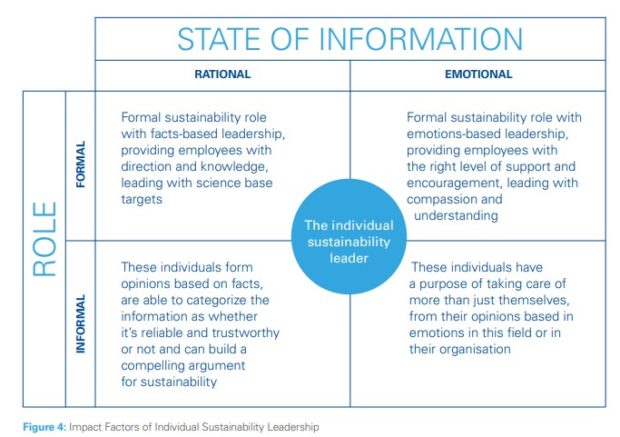In 2019, EPCA (The European Petrolchemical Association) and Antwerp Management School joined forces to undertake research into the nature and benefits of individual sustainability leadership. It demonstrated the invaluable impact that this type of leader can have on the way an organisation is led, managed and contributes to creating environmental, societal and economic value.
The goal of the research was to identify the defining characteristics of individual sustainability leadership and to showcase the best practices from within and outside the petrochemical industry. It therefore gathered evidence on how deploying individual sustainability leadership helps companies address the current global economic, cultural, social and ecological challenges and achieve the United Nation Sustainable Development Goals (SDGs).
Based on 15 in-depth interviews with sustainability experts (e.g. Anniek Mauser (Unilever), Jeff Turner (DSM) and Geanne van Arkel (Interface)), as well as a literature review, the research demonstrates that individual sustainability leaders share many common characteristics and competencies. They can be found at any level in the organisation, irrespective of their responsibilities and roles. When successfully applied, sustainability leadership generates significant business and employee benefits, including increasing employees’ engagement, motivation, purpose and giving them pride in their daily work – promoting diversity, creativity and innovative thinking.
Sustainability leaders enhance their companies’ resource efficiency and resilience to disruptive changes, helping their businesses retain its skilled workers and become more attractive for new top talents.



